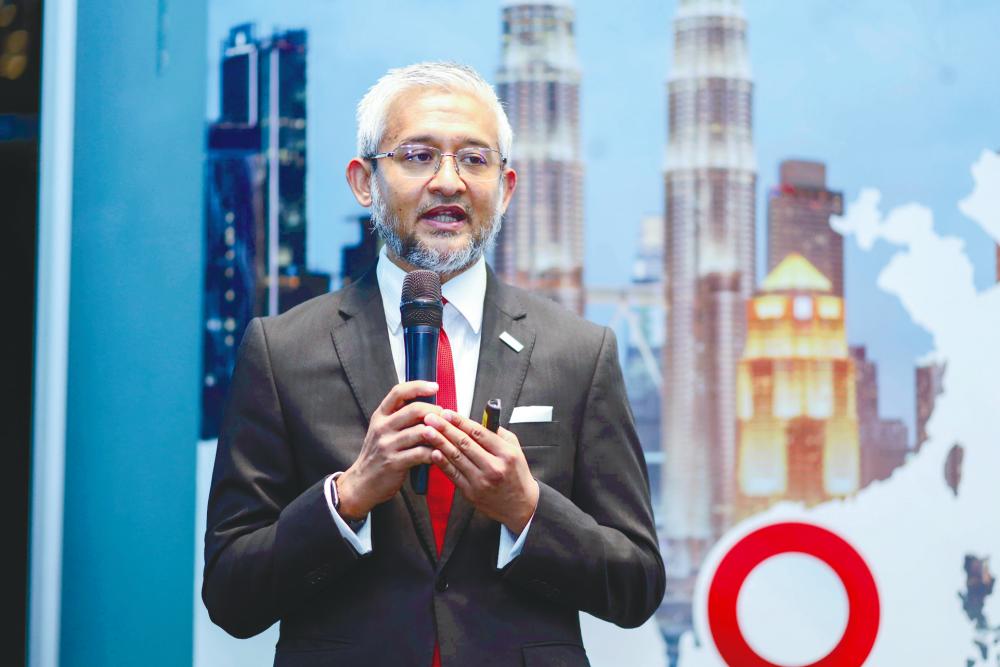PETALING JAYA: InvestKL is confident of achieving its baseline target of attracting 10 multinational companies (MNCs) with a combined investment value of RM1 billion for 2021, as it closes in on more than two deals relating to insurance, engineering, big data and cloud computing.
Its CEO Muhammad Azmi Zulkifli (pix) stated that a more detailed update will be given in the coming weeks.
“We expect to finalise more than two MNCs involved in insurance, cloud computing, enterprise solutions, big data, engineering and management. We will also announce the investment value for Q1 of 2021,” he said at InvestKL’s media update “The next chapter” yesterday.
Muhammad Azmi teased that the incoming MNCs will offer more than 500 high-value jobs for Malaysians, primarily in actuarial and data-engineering talent.
Last year, the agency under the International Trade and Industry Ministry has secured 12 fast-growing companies which have committed RM1.73 billion in investments despite the challenging environment due to the Covid-19 pandemic.
Of the 12 MNCs secured in 2020, he observed that the companies from the Asian region have reached parity with those of the US and European origin, which historically commanded the larger shares of such investment.
Moving forward, the CEO emphasised that InvestKL will retain its benchmark for investment with a regional presence, seeking hubs for the Asia Pacific and Asean region or even the world.
Looking ahead, he is upbeat that the economy will return to normalcy this year on the back of the government’s ongoing vaccination effort.
“Business optimism is slowly coming back as discussions on agreements and contracts.”
He noted over the years, over 1,000 Malaysians employed by the MNCs have been sent overseas, indicating an investment in local talent, grooming them for more senior management positions in their organisations.
To increase the country’s competitiveness, InvestKL has collaborated with local higher education institutions to build a talent pipeline to match potential investors’ requirements.
Efforts in this area have culminated in the launch of the “Fit4Work”, a tailored soft skill enhancement programme aimed at improving the quality and competitiveness of young graduates through job placement with MNCs, government-linked companies and major corporations with the participation of the Universiti Malaya and Universiti Putra Malaysia as pilot project partners.
The programme will kick off with an initial intake of 100 graduates in May, which entails a three-month programme in four core areas – management skills, knowledge skills, essential skills and Industry 4.0 (IR 4.0) business skills.
Upon completion, participants employed by these companies will be offered a minimum employment of one year with hiring incentives offered to the participating companies.
In addition, it also unveiled the “Greater KL Live Lab” programme aims to attract companies to collaborate with local players to elevate the area’s competitive advantages for quality, innovation-led and knowledge-intensive activities.
The initiative aims to create high-value jobs, increase economic complexity, extend domestic linkages and improve inclusivity.
At end-2020, the agency has exceeded its target for 2011-2020, having attracted 103 corporations with a total committed investment of RM15.8 billion and 14,111 regional executive jobs created.
Of the figure, RM11.4 billion or 72% has been realised, 74% or 10,411 of the committed jobs have been filled with an average salary of RM10,384 per month.
For the next decade, Muhammad Azmi revealed InvestKL also aims to attract 100 of the world’s leading MNCs and fast-growing companies to set up their regional services and technology hubs in Malaysia by 2030.
This 10-year strategic plan, anchored on the National Investment Aspiration (NIA) blueprint, is focused on attracting high-quality investments in technology and innovation-based activities to catalyse Malaysia’s move towards a high-income economy.
He elaborated it also aspires to collaborate with and boost the growth of small and medium-sized enterprises, local businesses and create high-value jobs.
“Our objectives are based on the NIA, with its focus on high technology and innovation, and is aimed at striking a balance between economic development and environmental sustainability, in line with global environmental, social and governance benchmarks.”









